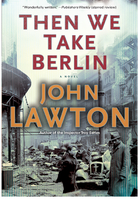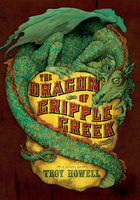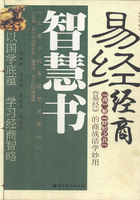Nobody leaves my office until we agree on fifteen reasons for why we go to the movies." Levison looked around the room. "Alison, when was the last time you bought a ticket to see a movie?"
Alison Kelly, his story editor, covered her face with her hands. "I am so embarrassed," she said. "But I just hate to stand in lines. I think it's been two months. What can I say, I go to screenings."
Levison stood up. "From now on, everyone in this room has to go to a movie theater and pay to see a movie, sneak previews don't count, at least once a month." He turned to Griffin. "Griffin, when was the last time you bought a ticket to see a movie?"
"The Bicycle Thief, last night." As soon as he said it, he realized what he had done. He had confessed.
"Okay," said Levison, "why did you go?"
"Because it's a classic and I've never seen it."
"And why didn't you have it screened?"
"I wanted to feel the audience reaction."
"What was the reaction?"
"They loved it."
"Who were they?"
"People who hate the movies we make." Better to go on the attack. Maybe not.
"Did you like it?"
"It's great. Of course."
"No remake potential?"
"We'd have to give it a happy ending."
"What if we set it in space, another planet. The Rocket Thief?" He was grinning. This was a joke.
"A poor planet?"
"There you go," said Levison. "Right away we're talking about something we've never seen in a science-fiction film, and that's a poor planet. How come space is always rich?"
"Luke Skywalker's farm in Star Wars was pretty run-down."
"Fine," said Levison. "And it worked, and what I'm saying is, that's why we have these meetings, to come up with images, to come up with characters and story ideas, so we're not at the mercy of whoever comes through the door. So we can contribute, so our own ideas can get made. Now. Let's start at the beginning. Why do we go to the movies? Give me some reasons."
Hands were raised. Levison ran to the always ready easel with its large tablet of clean poster paper and, with a marking pen, quickly scribbled one through fifteen.
"One," he said. "Griffin went to see a classic. This list should not be in any special order of priority. You'll notice I don't want to start with the clichés, like escape or entertainment. So we'll say—and this is a legitimate reason to go to the movies—we'll say, 'We go to see classics.'" He wrote CLASSICS on the paper. Then he wrote next to two, ENTERTAINMENT, and next to three, ESCAPE.
"Mysteries," someone said. MYSTERIES was added.
"Doesn't anyone go to the movies for sex?" asked Levison. "Don't guys choose movies that they hope will turn on their girlfriends?" Levison grinned and wrote SEXUAL PROVOCATION.
"New fashions?"
STYLE.
"I like driving fast after a James Bond film."
ENERGY.
"What about movie stars?"
STARS.
"I'm always happy looking at Paris."
TRAVEL.
"Comedy."
LAUGHS.
"Horror films."
SCREAMS.
"Songs."
SONGS.
"Love stories."
LOVE STORIES.
"Are we talking about types of movies or reasons that we go?" Drew asked.
"Whatever gets you to the theater," said Levison.
"I like the crowd," said Drew. "I like other people."
COMMUNITY.
Griffin pressed back into the green couch. He thought about excuses. First he would have to say something to the people in the room. Once the body was discovered, and it was already in a morgue, he knew that someone would say, "This writer was killed outside that theater you went to last night, Griffin, did you know that?" And he would answer, "That's the last time I go out in public." Some kind of light remark to get away from the specific murder into the territory of a world gone mad.
"Sometimes," said Drew Posner, "I have to admit I go to the movies not so much for escape—well, I guess it's a kind of escape, but it's more—it's for comfort. It's sort of everything, it doesn't matter what kind of film, just as long as it's a movie."
COMFORT.
"I know they're not popular now," said Mary, "but I've always liked big costume epics."
PERIOD.
"Fair enough," said Levison. "The point of this exercise is to think about what we like, not what we think we should like, or what we think the public will like or what we think the public already likes. And that's fifteen. Let's get sixteen. Who's going for it?"
Griffin raised his hand. "Usually I go to the movies to see what everyone else is seeing, so I can talk about it, so I don't feel left out. When I was in the fourth grade, all the cool kids in my class had seen The Great Escape, I hadn't. But I acted like I had."
Levison held the chalk to the board, trying to find the one word.
"Try lemmings," said Drew.
PEER PRESSURE.
"Now that we know why we go to the movies, the next step will be to look for projects that engage us on these basic levels. Class dismissed."
Griffin wanted the day to stop until the afternoon edition of the Herald came out. He returned to his office and closed the door. He called the studio store and asked if the afternoon papers were in. They were.
Jan looked up from her script as he left. He marched to the store, picked up the paper, dropped his quarter, and marched back to his office. He was gone for five minutes. He passed Jan and closed the door. He put the paper on the desk. He felt the same anticipation for the news as he did when the first reviews of one of the company's films came out. It was on the ninth page.
MAN FOUND DEAD IN THEATER PARKING LOT
A theater projectionist leaving his job after midnight discovered the body of David Kahane, 29, in the parking lot of the Rialto Theater in Pasadena. A spokesman for the Pasadena Police said that Kahane had been dead at least two hours before the body was discovered. The cause of death has not been identified. Kahane, a part-time writer, was a resident of Hollywood.
Would the Writer read this and get the message? Griffin wasn't sure. Why did they call him a part-time writer? Griffin felt sorry for Kahane. Probably the reporter had a screenplay in his desk, or ideas for a script, and a friend or two in the entertainment department of the paper, so he had a mean sense of the fringes of the business. Poor June Mercator, who probably loved Kahane, would she stay with him if she hadn't loved his writing? That was too hard a question. Blinded by love, she might have thought he was Melville. Would she spend the next few days reading Kahane's unpublished stories and un-produced scripts? Here was a sentence Griffin wished he could say: I have killed exactly the right man.
Griffin looked at his messages. A call from an agent. A call from the Marketing department. A call from Business Affairs. A call from a writer. A call from an agent. A call from an agent. A call from Levison. A call from his lawyer. A call from London. Had Kahane ever been this busy? Was the Writer ever this busy?
Jan called him on the intercom. Walter Stuckel was in the outer office. Griffin told Jan to tell him to wait a minute. He got off the phone. He counted to ten, then to twenty, then to twenty-seven. He went to the door, better to meet Stuckel more than halfway.
"Hello, Walter." Stuckel was on his feet, reading memos faced away from him on Jan's desk. When Griffin extended his hand, Stuckel looked up slowly, and this refusal to play along, which in anyone else would have provoked annoyance, scared Griffin.
Stuckel took his hand. He was about fifty-five, with thick white hair brushed forcefully away from a severe part; anyone in a corporation would recognize that he was not an administrative executive. He wore a turquoise blazer and black pants and brown Florsheim loafers. He had mottled pink-and-white skin. He squinted, just a little, not to avoid the sun but to focus his examination. "We should talk," he said.
Griffin brought him into his office. Instead of taking a seat by the couch, he sat behind his desk, forcing Stuckel to take a hard-backed chair. He offered coffee. Stuckel refused it, politely.
"Okay, Walter," said Griffin, "don't tell me you've come to pitch a story."
"I've got a few."
"I bet you do, Walter."
"But I'm not a writer."
"If the stories are good, we can always hire someone to make them work." Griffin didn't like the subject. His heart was pounding.
"Did you ever have a meeting with David Kahane?"
"Yes. Quite a while ago."
"Did you know he's dead?"
"Good Lord, he was younger than me, what happened?"
"Why don't you tell me?"
Griffin wanted to stop time. "Walter, tell me everything you're thinking about, right now."
"Did you know I used to be a cop?"
"FBI, right?"
"That, too. I got a call from Pasadena homicide today. David Kahane was murdered last night."
"No."
"And you called his house around seven o'clock. His girlfriend told you he was going to see a movie in Pasadena."
"I don't even remember the name of the movie."
"The Bicycle Thief. You went."
"No, I didn't."
"You went. You met Kahane at the theater, you got drunk with him in a Japanese restaurant, and he left before you did. Then he went to a McDonald's. That was the last time anyone saw him alive. Griffin, why do you deny it?"
"What do the police think happened?" It was a Burger King, not a McDonald's. Already the story was getting lost. This cheered Griffin and gave him hope.
"They think he was murdered for his wallet and his watch. It happens every day. I can tell the police you're acting like you've got something to hide, and they'll haul you into the station for questioning. Or I can let you speak to them over the phone. Or they can come here. Or they can drop this altogether. I don't think they'll do that."
"Of course, I'd want to cooperate any way I can."
"There was a party in Malibu a few years back, music people. A lot of drugs. A lot of rum."
Griffin supposed this was Stuckel's way of saying that this story was about black people.
"And there was a security guard, to keep gate-crashers away. He had a gun. One of the guests wanted to play with it. The guard gave him the gun. A few minutes later the guard was dead. The police were the second call. And the matter was taken care of."
"Who did they call first?"
"I wouldn't tell you if I knew. I have to say, though, that I admire your tactics. Stonewall. Deny everything, it's your word against theirs. As long as nobody saw you actually kill the man, and as long as you have nothing to connect you, except for, well, how many meetings did you have?"
"I only met him once."
"Not counting last night."
"Okay," said Griffin, "you're right. I saw him last night. And I did know he's dead, I saw the paper."
"Then why didn't you say so?"
"Good God, Walter, I don't want to get involved."
"Very good. I'll tell that to the police."
"I'll call them myself. I'll say I met him at the theater, we got drunk together at a Japanese bar, he had to go home, I didn't feel sober enough to drive, he left, that was the end of it. I'll tell them, when they ask, that I went to see him because he'd pitched me an idea. I loved it so much, I wanted to buy it, and I didn't want to wait until he was home to tell him. I was that happy for him, and for me. That's the truth. That's what I'll tell them. I'll go there right now." How could anyone, how could Walter Stuckel, not believe this? It was so simple. And if they didn't believe it, Griffin would stick to this line, because it was easy to tell and easy to remember. It made sense.
"No. We'll have them come here."
"I don't want to inconvenience them."
"You're talking like someone who's guilty. You're not guilty, are you?"
"The usual neurotic guilt."
"That's a joke. This is murder. I was a cop. You're behaving like you killed him. If you act this way with the police, they'll be suspicious."
"How should I act?"
"You tell them everything. They're trying to solve a murder."
"I haven't killed anyone."
"I'll let you know when they're coming."
Stuckel left. Griffin wasn't sure what had happened. Was he under suspicion for murder? Or was there only the routine questioning of everyone who might have information about the last hours of a victim? There was no reason for him to have killed Kahane; rather, there was no discoverable reason for the murder. Griffin considered that this might have been the most private event of his life. He could go on a witness stand and describe the hour he'd spent with Kahane, then describe their parting in the restaurant. Why did they leave separately? Griffin wanted to hear more music. Kahane was feeling sick. Kahane wanted to get back to his girlfriend. No one would doubt him.
Levison called. A director under contract was looking for a romantic comedy. Would Griffin check around for a few scripts? Griffin would. He pushed Kahane and Stuckel from his mind as he dialed the phone himself. He was working.
Griffin was shocked by how little guilt he felt. It almost made him want to see a therapist. This is probably why I'm not married, why I don't have a family, he thought. He couldn't imagine how he could go to someone with this problem. Did the seal of confession apply? What would a therapist say? I can't help you; your remorse is misplaced.
When he took Bonnie Sherow to Cabo San Lucas, she had annoyed him by saying how grown-up it was to take that kind of vacation. "I feel like such a grown-up," she had said when they were alone in the room after the bellboy left.
"What do you mean, 'grown-up'?" he'd snapped. "You think we're just kids and we're playacting. This is real. I don't feel like I haven't earned the right to do what I do." He didn't know then what he was really saying, he was just tired of Bonnie, probably, and looking for a fight. Bonnie knew then, when she covered herself and wouldn't make love to him until later that night, after a lot of tequila, that his little outburst marked the end of it for them. He knew his anger at her was wrong. Bonnie had looked at him with disappointment and sadness. Was he a grown-up now that he had killed a man? Bonnie had meant responsible, contained, independent, capable of decision, capable of spending money. There was also a sense of gravity, the feeling of being centered. He knew twenty-five-year-olds who were given charge of millions of dollars for film budgets. Were they grown-ups? He was thirty-one and sometimes felt exhausted. Was he a grown-up? David Kahane had spent years reaching for a brass ring. What had he learned? Was he a grown-up?
Griffin wondered if he would have to kill again. He supposed a therapist would tell him that he was waiting to be caught, and if he were caught, then yes, he must have been waiting, but what if he weren't caught? Let's suppose I live a long time and die with a smile, thought Griffin, and only I know that I killed. Am I the tree falling silently in the forest because no one hears it? If you get away with murder, is it murder?
And if he went to an analyst, and he trusted the analyst enough to confess the murder, and the analyst asked him why he killed David Kahane, what would he answer? Because I had to. Because he was there. Because I had hit bottom and there was nowhere left to go. Because I've never been to war, and I needed to kill a man.
Why did you need to kill a man?
Because he was there.
What if I take out an ad in Variety, he thought, a small ad, anonymous, telling the postcard writer that I want to meet him? What if I don't show up, what if I hide, watch him, see him, and then, later, kill him. No witnesses. An alibi. Go to San Francisco for the weekend and fly down under another name on another airline. Kill him, go back to San Francisco, and come home as Griffin Mill.
Jan was in the room. "Griffin?" She looked at him with doubt. "Are you okay?"
"Why?" How long had this reverie lasted? Had he missed a ringing phone?
"Walter Stuckel, what did he want? Was this about the postcards?"
It was time to take charge. He looked at Jan with an equal blend of impatience, condescension, and affection. "Jan." It was all he had to say. When she left the room and closed the door, he raised a triumphant fist in the air.
He wrote, "I said I'd get back to you" on a piece of notepaper. Then he wrote, "It's time we talked." He paused. Now what? He crossed out that last line about naming the time and place. The line was weak, a kind of appeasement. It was too familiar. "No more cards. It's my move now, but I'm giving it to you. Let's do it soon." He called Variety and got a price for a small ad. They preferred a check but accepted cash. Cashier's check? they asked. No, said Griffin, cash.
On his way home that night he stopped at a bank machine and took out two hundred dollars. When he got home, he put the money and the message in an envelope and addressed it to Variety. He didn't have any stamps, because he never mailed anything from home. He bought stamps from a post-office machine in the morning.
June Mercator called him at nine-thirty. Jan told him her name with a stupid innuendo, as though it were an old affair he was trying to stop. He wanted to say "Who?" but he took the call without a word.
"Hello, June. My God, I just found out about David. How are you?"
"Oh, I'm not very good, I guess. It hasn't really hit me yet. It's very complicated."
"I can imagine." Why was she calling?
"I'm just watching myself go through the motions of my own life." Griffin sensed that she didn't want to talk about this now, that she wanted to control the call, that she wasn't feeling particularly emotional and wasn't up to faking it.
"This is a blow to all of us," said Griffin. "Have the police … have they made any progress?"
"No." Then she didn't say anything.
"You know, I went to the theater after I called you."
"Yes." Griffin wished she had said, "I know." Her "Yes" just hung there, a challenge. He had already talked too much. Of course this is why she's calling. "Yes, I wanted to talk to David about an idea. I had something he would have been good for."
"You were going to give him an assignment?"
"If I say yes, I'll be lying. I was going to talk to him about something, to see if he was interested, to see what ideas he might have."
"What did he say?"
"He said he'd call me in the morning. He didn't have his date book with him, but he'd try to fit me in." Griffin said this with a touch of bemused pity, to let June know he wasn't fooled by David but didn't hold the game against him.
A low sound came from June, a kind of sigh. Griffin heard a little exasperation with this bit of silly diplomacy, as though David were still alive, a little reproach directed at his soul, a little anger at herself for staying with him when it was just this kind of obvious gesture in the direction of pride that had kept her lover so far from success.
"Poor David," she said.
"Did he have parents and stuff, family?"
"Everything. Parents, a brother, a sister, a grandmother. A niece."
"When's the funeral?"
"You don't have to go." There was a new sound in her voice, she was too quick, he thought; she was embarrassed about something.
"When is it?"
"Tomorrow morning."
"I'll be there."
"Griffin, have the police spoken to you?"
"We've had contact."
"Good. I mean, maybe you saw something. Maybe you don't even know it, maybe you saw the killer, maybe you saw a car or something that's been near other murders."
"No. I hate to say this, but I didn't see anything."
"You don't know that."
The call ended. Griffin was surprised by the edge of desperation in June Mercator's voice. When he'd spoken to her the night of the murder, she'd sounded ready to leave Kahane. Now she was crying over small clues. Griffin wondered if Bonnie Sherow would miss him if he died.
The next morning, he didn't wait until the office for Variety, he bought it at a liquor store and ripped the back page as he searched for his small ad. "No more cards. It's my move now, but I'm giving it to you. Let's do it soon." He read it over three times, a dozen times, aware of a surge of pride, authorship, which relented only when a kind of stage fright chewed its way through his satisfaction. It was so naked, no phone number, no box number, something to invite a bit of curiosity from the casual reader. He realized Jan might see the ad and show it to him, so he was glad he hadn't ordered NO MORE POSTCARDS. If Jan was to bring it to him, he would tell her to get back to work. This led him to consider firing her. On the one hand, he thought, she's too caught up in the postcards, the next secretary might pass them on to him without comment, but if his plan worked, if the Writer left him alone, whether because he was dead or scared or etherically placated, they would stop. On the other hand, Jan would tell the replacement about the postcards, and if they continued, even for a short time, he would have to tell more lies.















